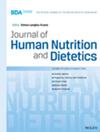The effects of nutrition education on nutritional knowledge and dietary behaviours in primary school students in Zhongshan city
Abstract
Background
Adequate nutritional knowledge and healthy dietary behaviours are essential for promoting rational nutrition for children. However, lack of nutritional knowledge and unhealthy dietary behaviours are common among Chinese children. Therefore, we developed a school-based nutrition education (NE) program to assess its impacts on nutritional knowledge and dietary behaviours in pupils.
Methods
In this trial, one school was assigned as an intervention group (n = 199) and the other two schools were designated as a control group (n = 140). Children in the intervention group received the NE program in addition to their regular health curriculum, whereas the control group continued with their usual health curriculum without any NE program materials.
Results
Concerning nutritional knowledge, the mean difference (follow-up minus baseline) of average knowledge scores in the intervention group was significantly higher than that in the control group (1.99 ± 3.22 vs. 0.66 ± 3.60, p = 0.001). However, subgroup analysis revealed that this difference disappeared among boys and students with malnutrition status. Regarding dietary behaviours, the NE program significantly increased the proportion of children exhibiting high frequencies of meat and nuts consumption in the intervention group, along with diverse food choice at breakfast. Additionally, it markedly reduced the proportion of children exhibiting high frequencies of sugar-sweetened beverages and fast food consumption. Structural equation modelling analyses indicated a significant direct effect of NE intervention on nutritional knowledge and an indirect effect on dietary behaviours.
Conclusions
The NE program effectively enhanced nutritional knowledge scores and further improved dietary behaviours among Chinese primary school students. Future NE programs should pay more attention to boys and children with malnutrition.

 求助内容:
求助内容: 应助结果提醒方式:
应助结果提醒方式:


